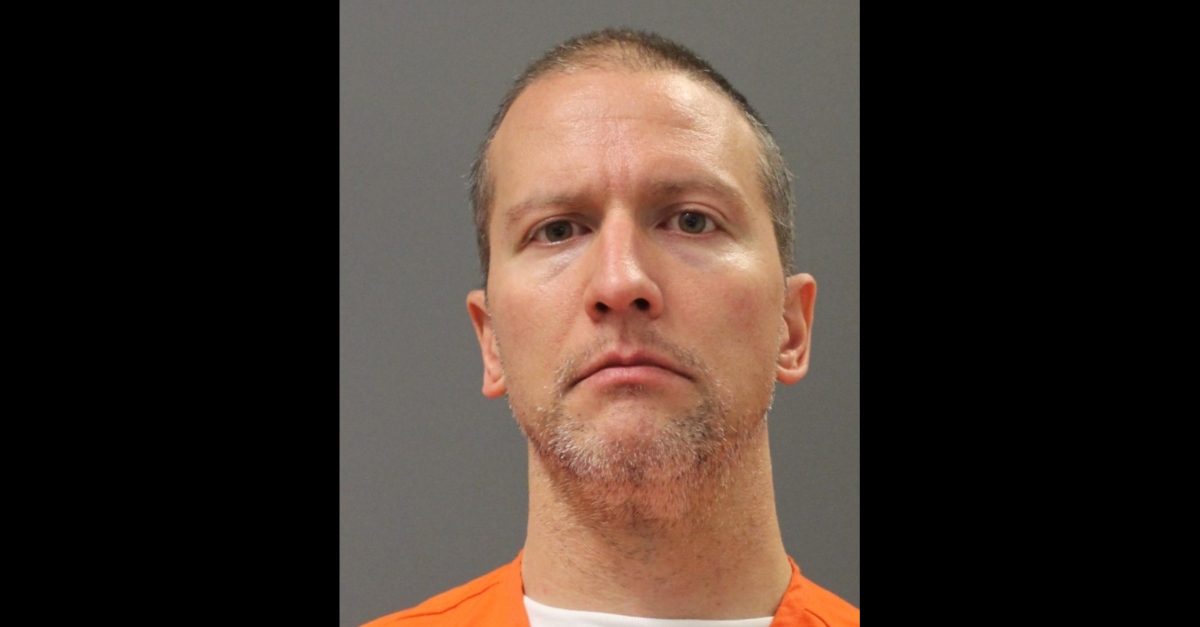
The trial of fired Minneapolis police officer Derek Chauvin got off to a false start on Monday with uncertainty over how many charges Chauvin will face for the death of George Floyd.
Originally intended to begin on Monday, jury selection has been postponed until at least Tuesday, and proceedings scheduled for Monday morning for motions in limine were postponed until 1:30 p.m. Central Time.
Charged with second-degree murder and second-degree manslaughter, Chauvin used to also face a third-degree murder count before trial Hennepin County District Judge Peter Cahill dismissed it last October. While prosecutors want that charge reinstated, the defense does not—a dispute that left the nation in suspense over when jury selection would begin and what form a future trial will take.
“The court’s view is I don’t have jurisdiction to consider in any way reinstating the murder in the third degree because judgment has not been entered by the Court of Appeals, and so jurisdiction has not been passed back on that issue,” Judge Cahill said. “However, I do find that the other matters, including jury selection are not matters related to the appeal and we should move forward on them.”
Prosecutors want an appellate court to stop jury selection from moving forward pending a decision on the third-degree murder charge. The defense said it planned to petition the Minnesota Supreme Court against reinstatement of the murder charge.
At the heart of the controversy is whether third-degree murder requires a defendant to endanger multiple people or only one. In the Chauvin case, the officer’s only alleged victim is Floyd, on whose neck Chauvin knelt for seven minutes and 46 seconds.
Finding that the statute required more than a single person, Cahill threw out the charge late last year, but precedent changed since that time with a divided Court of Appeals upholding a third-degree murder conviction of Mohamed Noor, another fired Minneapolis police officer who was tried for shooting 911 caller Justine Ruszczyk while on-duty.
On Friday, the Minnesota Court of Appeals made clear that the Noor precedent is binding upon Cahill.
“In the words of the United States Supreme Court: ‘[U]nless we wish anarchy to prevail within the federal judicial system, a precedent of this Court must be followed by the lower federal courts no matter how misguided the judges of those courts may think it to be,'” the court wrote in an 18-page ruling.
The Minnesota Supreme Court is reviewing the Noor decision, but the Court of Appeals made clear that this decision does not make their ruling any less binding in the interim.
“The Minnesota Supreme Court routinely grants petitions for review of this court’s precedential opinions without vacating or otherwise altering the precedential effect of those opinions,” the three-judge panel noted, adding that the Noor opinion became “binding authority on the date it was filed.”
But the ruling has not been formally entered. Until the Court of Appeals enters that judgment, prosecutors argue, the trial court lacks jurisdiction to move forward with the trial. Chauvin has 30 days to file the Minnesota Supreme Court petition, and Attorney General Keith Ellison (DFL) called the issue too important to allow for any loose threads.
“The State is fully ready to go to trial, but the trial must be conducted in accordance with the rules and the law,” Ellison wrote in a statement. “Now that Mr. Chauvin has stated his intention to appeal Friday’s Court of Appeals ruling to the Minnesota Supreme Court, as is his right, the district court does not have jurisdiction to conduct jury selection or hear and rule on other substantive matters in the trial. We have filed motion with the Court of Appeals to ensure that justice is pursued properly.”
Ellison’s team argues that Chauvin has positioned himself in a “heads I win, tails you lose” situation that demands appellate court intervention.
“[Chauvin] can take his chances at trial,” Assistant Attorney General Matthew Frank wrote in an eight-page motion. “And if he is convicted, he can now also claim that he is entitled to reversal because the District Court lacked jurisdiction at a crucial moment in the trial. There is no need for this kind of uncertainty in any case, let alone a case of this magnitude.”
Law&Crime Network reporter Angenette Levy observed many Floyd supporters on the scene, with few signs of Chauvin’s backers at the courthouse.
Former U.S. Solicitor General Neal Katyal, a Hogan Lovells partner acting as a special attorney for Minnesota, declined to comment.
Chauvin’s lawyer Eric J. Nelson did not respond to emails requesting comment by press time.
[Image via via Minnesota Department of Corrections]